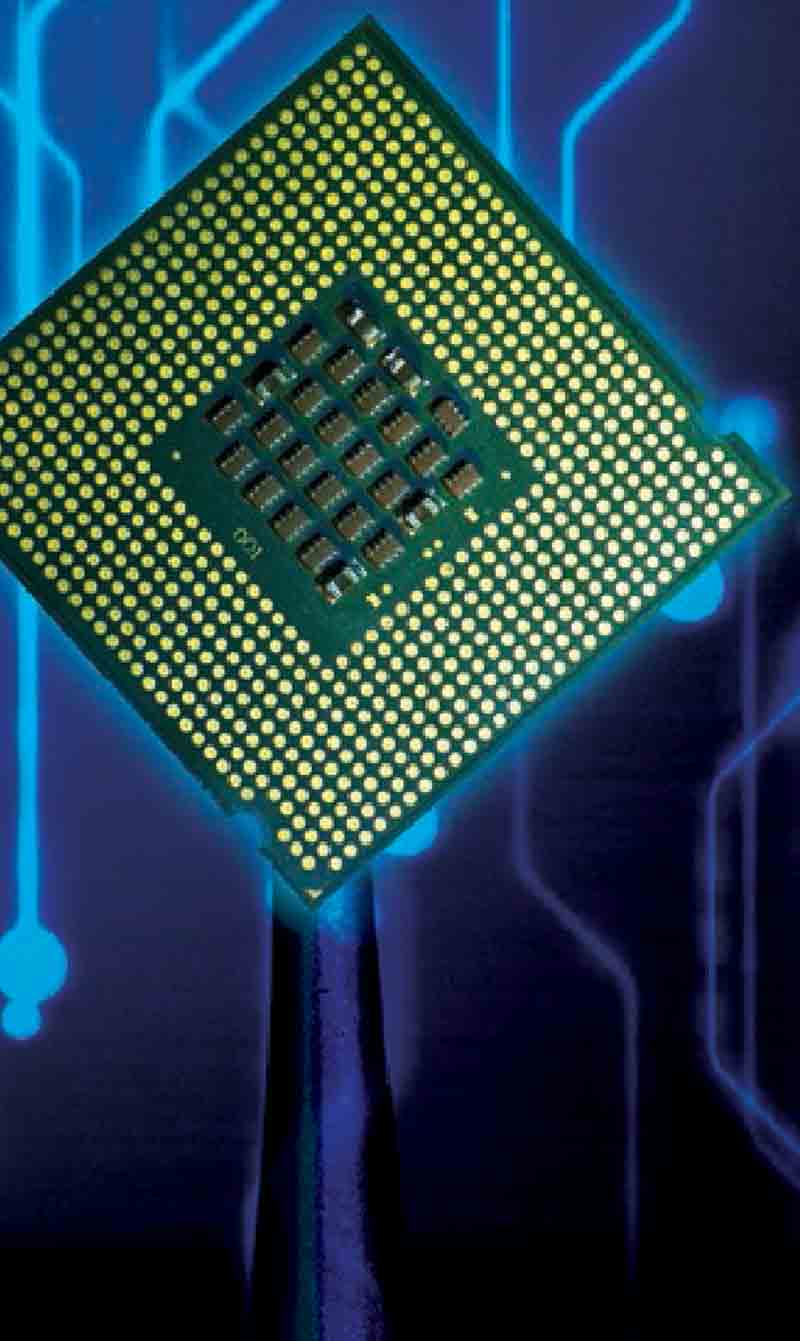Quantum computing 101
The thing about quantum computing is, even though computers using the technology are already being made, nobody quite know exactly how they work. It’s not just an assumption, it’s a fact. Thus, during the WIEF Global Discourse on Quantum Computing in Kuala Lumpur this September, experts will shed some light on the matter. For now, we deliberate on this technology that’s been predicted to revolutionise the world.
Right now, in this day and age where robots adopt human sensibilities and human emulate robotic technological precision, anything is possible. So, if we are to tell you that one day, this insanely complex machine that go by the name of quantum computer that runs on unfathomable principles of quantum computing birthed by quantum technology, will unlock the secrets of the universe, would you believe it? Yes, you would, because all evidence points toward this direction. What’s more, you, along with at least 95 per cent of the world’s population, are just as in the dark about this technological phenomenon as we are.
What?
So, let’s get started on the ‘getting to know you’ part. This is what we know so far: Quantum computing focuses on developing computer technology based on the principles of quantum theory. Due to this technology, quantum computers work millions of times faster than even the most powerful super computers we have today. Simply put, the technology accords a computer enormous processing power through the ability to be in multiple states and to perform tasks using all possible permutations simultaneously – more on this in the second paragraph of ‘How?’ section below.
Why?
The birth of such powerful technology is inevitable and very necessary because we’re entering a big data world. The amount of information we store grows exponentially and quantum computing addresses how human fully understand the urgency to solve this conundrum, but brevity makes innovation and as Chekov once said, ‘Brevity is the sister of talent’.
Furthermore, there’s a need for more than the classical computer’s ones and zeros, and transistors, to process it. Computers as we know it are mainly limited to doing one thing at a time and it takes longer for it to tackle an intractable problem, which is a problem that requires more power and time that is beyond what today’s computers can handle.
How?
Keep in mind that we’re deciphering something absolutely abstruse and manoeuvring around a lot of information that’s relatively alien to mere mortals. So, here goes: According to ExplainthatStuff!, colliding quantum (theory) and computing is what equals to quantum computing. Now, back-pedal a little. If you’ve studied light, then you’d already know a little about quantum theory. Basically, a beam of light can be two things at once – a wave and particle – and this is termed as wave-particle duality, which is one of the ideas of quantum theory. To simplify, it’s like a car being a bicycle and a bus at the same time, crazy but this is what it’s all about.
Explainthatstuff! explains, the key features of an ordinary computer are bits but a quantum computer has quantum bits or qubits. While a bit of an ordinary computer can store either a zero or a one, a qubit can store a zero, a one, both zero and one, or an infinite number of values in between, and store multiple values simultaneously. That’s not all, a quantum computer can not only store multiple numbers at once, but also process them simultaneously and it works in parallel, doing multiple things at the same time. Whereas, a conventional computer works in serial, which means it does a series of things one at a time in a sequence. Suddenly, conventional computers sounds slow, doesn’t it? And that’s why it’s been estimated that quantum computer’s ability to work in parallel is what makes it millions of times faster than a conventional computer.
When?
Collectively, from our research, there’s no definite answer as to when quantum computer’s scheduled to be ‘in the market’. However, there’s an anticipated period where instalments of the quantum computing will be in specialised use but not yet at the consumer level.
For now, there are small sparks of its existence. For instance, in 2017, IBM reportedly said, it was ‘advancing on its efforts to commercialise quantum computing with a 50 qubit processor prototype and online access to 20 qubit processors by the end of 2017’. Futurism reports, ‘IBM’s machine isn’t yet ready for widespread, commercial or personal use. Like all of today’s quantum computers, IBM’s 50 and 20 qubit systems still require highly specialised conditions to operate’. Furthermore, ZDNet reports, ‘IBM has said that it plans to commercialise quantum computing, a breakthrough that’ll enable new applications for a variety of workloads. IBM delivered a 17-qubit prototype processor in May [2017]’.
Although the technology has been in the making for decades, it’s only now, according to MIT Technology Review, ‘researchers are finally close to building quantum computers powerful enough to do things that conventional computers cannot’. It also reports that, ‘Google has been leading the charge toward this milestone, while Intel and Microsoft also have significant quantum efforts. And then there are well-funded startups from the western hemisphere such as Rigetti Computing, IonQ and Quantum Circuits’.
Who benefits?
It’s foreseeable for quantum computers to be used to design more efficient solar cells, more effective drugs, or catalysts that turn sunlight into clean fuels. D-Wave Systems’ quantum computer, McKinsey & Company reports, is being used by Google and NASA. ‘Google has created what they call the Quantum Artificial Intelligence Lab, where they’re exploring using our computer for AI applications or learning applications. And NASA has a whole set of problems that they’re investigating, ranging from doing things like looking for exoplanets to [solving] logistic problems and things like that,’ says the CEO of D-Wave Systems who also predicts that quantum computing will be a technology that’ll very much be in use in all sorts of businesses within five years.
In fact, a few are already pegging hope onto this technology for a better daily life. For instance, an article in Quartz reports that, despite Los Angeles’ (LA) sophisticated traffic systems of 20,000 sensors within over 1,200 square km that feed data into a centralised supercomputer to adjust the timing of over 4,000 traffic lights in real time, it only reduces an eight km mile LA commute from 20 minutes to 17.5 minutes, traffic in the City of Angels is still considered a nightmare. Thus, the article reports, ‘The premise and promise of a quantum computer managing traffic flow is that, with the right algorithms, it could approximate the most-efficient futures of an LA rush hour and orchestrate routes that not just redirect cars and buses around a traffic jam but steer them home on routes that prevent the traffic jam from happening in the first place. Forward-thinking companies are already exploring quantum computing’s potential in this arena. Daimler AG, for example, is working on potential use cases, tackling complex problems such as vehicle routing for fleet logistics and autonomous cars’.
Last words
Undoubtedly, the world will change because of quantum computing. This is because we want smaller and more powerful computers that will change (and has changed) how we do computing radically. Quantum computing offers dynamic new possibilities through the realm of atoms, that allow processors to work millions of times faster than those being used currently. Other than allowing for search or analysis of much more data and transforming material science, quantum computing could lead to significant developments in, as reports states, artificial intelligence.
However, quantum computers are not intended to replace classical computers. Instead, they are to be another tool predicted to solve intractable problems. It’s believed that quantum computers will revolutionise everything.
The 8th WIEF Global Discourse on Quantum Computing on 20 September 2018 in Kuala Lumpur will address the potential strategic advantages and impact of quantum computing, particularly on how we do business. It’s an opportunity for members of the quantum community to discuss and exchange new ideas as well as identify issues of importance to them.
___________________
Photo by Dhaval Parmar on Unsplash.





